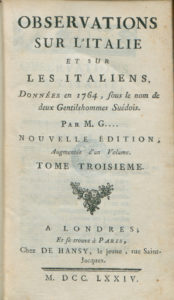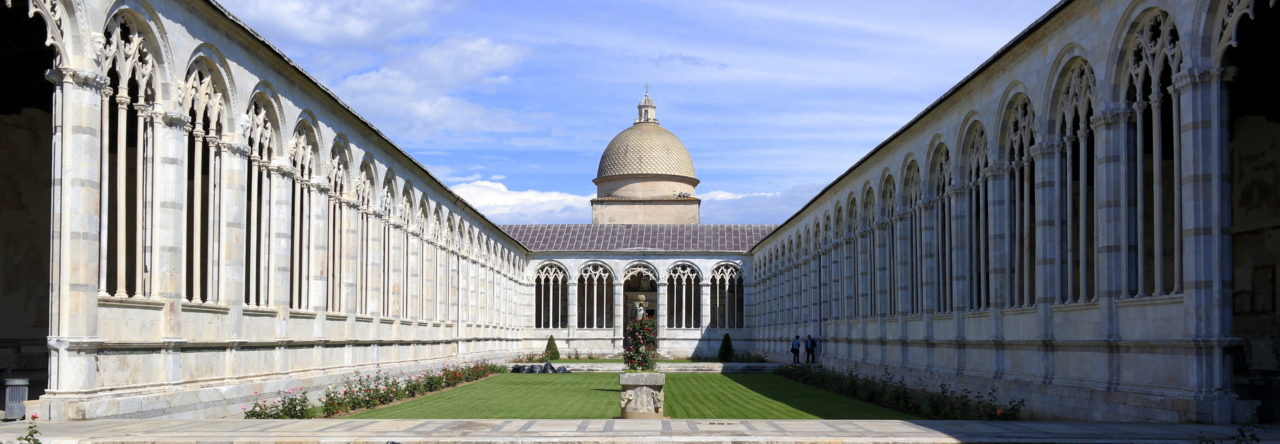
Grosley, Nouveaux_Memoires_ou_Observations_sur_l (excerpt)
Source: Pierre-Jean Grosley, Nouveaux Mémoires ou Observations sur L’italie et sur Les Italiens, 3 vols. (London: Jean Nourse, 1765), 3:237-238.
Translation: New observations on Italy and its inhabitants written in French by two Swedish gentlemen, 2 vols, translated into English by Thomas Nugent. (London : L. Davis and C. Reymers, 1769), 2: 322.
Transcription
«Cette magnificence se mêloit aux pratiques religieuses qui en paroissent le moins susceptibles. De ce genre, est le fameux cimetière, aussi construit en marbre, sur le plan de celui que j’ai vu depuis en France à Orléans. Le sol de ce cimetière, dans sa partie découverte, est entiérement formé de terres qu’en 1224, les Pisans rapportèrent de la vallée de Josaphat, près Jérusalem, sur la flotte qu’ils avoient fournie par l’expédition de Frédéric Barberousse. Cette terre conserve encore la vertu de consommer entiérement les corps humains, dans l’espace de 24 heures. Le Fossoyer m’assura en avoir fait des épreuves réitérées sur une soule d’Allemands qui vinrent mourir à Pise dans la guerre de 1733: La terra, me disoit-il, logoravagli con le loro grosse pancie, in termine di duoi giorni.»
Translation
“This magnificence influenced even such religious observances, which seemed the most alien from it. Such is the famous burial-place, likewise built of marble, on the plan of that which I since saw in France at Orléans. The ground in the open part of this church-yard, is entirely of earth brought by the Pisans, in 1224, from the valley of Jehoshaphat, near Jerusalem, in the fleet which they had fitted out for Frederic Barbarossa’s expedition. This earth still retains the virtue of totally consuming a corpse in the span of twenty-four hours. The grave-digger affirmed, that this he very well knew from repeated instances on multitudes of Germans, who died at Pisa in the war in 1733. La terra, said he to me, logoravagli con le loro grosse pancie, in termine di duoi giorni (“The ground within two days made an end of them and their tun [large] bellies”).”
